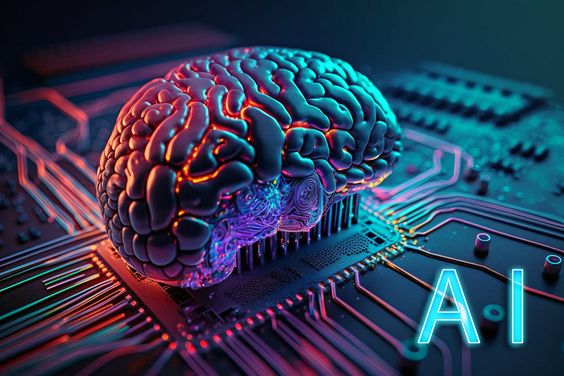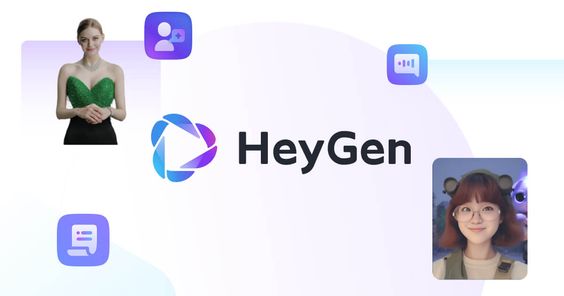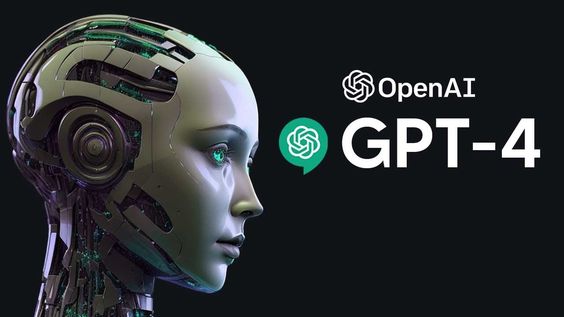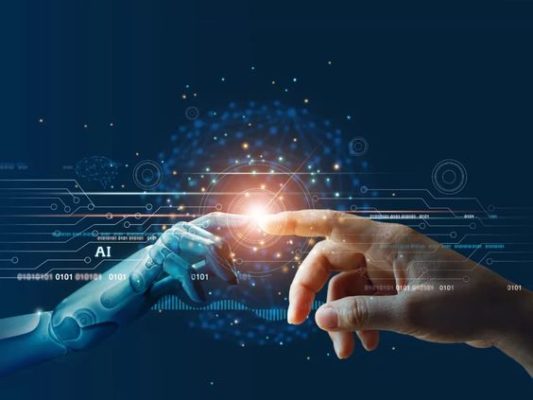The Influence of ChatGPT: Shaping Society, Culture, and Online Interaction
This article delves into the profound influence of ChatGPT on society and culture, exploring its impact on communication norms, work dynamics, and online content consumption. It discusses the changes in conversational etiquette, the integration of ChatGPT into workplace communication, and the challenges and opportunities in personalized content recommendations. Additionally, it addresses ethical considerations and societal implications arising from the widespread adoption of AI-generated content. Through this exploration, readers gain insight into the evolving landscape of human interaction and cultural expression in the digital age.
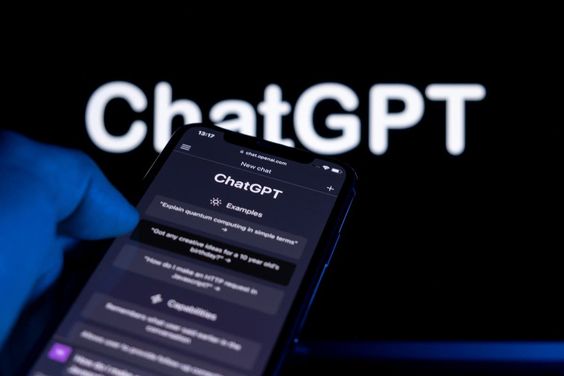
ChatGPT's Influence on Communication
Changes in conversational norms and etiquette:
ChatGPT's integration into messaging platforms, social media, and virtual assistants has reshaped conversational norms and etiquette. With the ability to generate human-like responses, ChatGPT blurs the lines between human and machine communication, leading to shifts in how people interact online. Users may find themselves engaging in more casual or informal conversations with AI-powered chatbots, adjusting their language and tone to mimic natural conversation. Additionally, ChatGPT's presence in online forums and communities has led to the emergence of new communication styles and trends, influencing the way people express themselves and engage with others in digital spaces.
Impact on professional communication and collaboration:
In professional settings, ChatGPT has revolutionized communication and collaboration workflows. Teams can leverage ChatGPT-powered tools for real-time language translation, document summarization, and automated email responses, streamlining communication processes and enhancing productivity. ChatGPT's ability to generate coherent and contextually relevant responses also facilitates smoother collaboration between remote teams and cross-functional groups, bridging communication gaps and fostering collaboration across diverse work environments.
Role in language learning and linguistic evolution:
ChatGPT's conversational capabilities make it an invaluable tool for language learners and educators. Language learning platforms and chatbots powered by ChatGPT provide learners with immersive language practice opportunities, enabling them to engage in simulated conversations and receive instant feedback. Moreover, ChatGPT's exposure to vast amounts of text data from diverse sources contributes to linguistic evolution by capturing and reflecting changes in language usage, slang, and colloquial expressions. As ChatGPT interacts with users from different linguistic backgrounds, it adapts and evolves, contributing to the dynamic nature of language itself.
In summary, ChatGPT's influence on communication spans across various aspects of interpersonal interaction, professional collaboration, and language learning. By understanding and leveraging ChatGPT's capabilities, individuals and organizations can navigate the evolving landscape of communication in the digital age, harnessing its potential to enhance productivity, facilitate collaboration, and enrich language learning experiences.
ChatGPT's Effects on Work and Productivity
Integration into workplace communication tools:
ChatGPT's integration into workplace communication tools has revolutionized the way teams collaborate and communicate. By incorporating ChatGPT-powered chatbots or virtual assistants into platforms such as Slack or Microsoft Teams, employees can streamline communication, access information quickly, and automate routine tasks. These AI-driven tools facilitate real-time messaging, document sharing, and scheduling, improving efficiency and productivity in the workplace.
Automation of repetitive tasks and productivity enhancement:
One of the most significant impacts of ChatGPT in the workplace is its ability to automate repetitive tasks and enhance productivity. ChatGPT-powered automation tools can handle a variety of tasks, such as data entry, customer support inquiries, and scheduling appointments, freeing up valuable time for employees to focus on more strategic and creative endeavors. By automating mundane tasks, ChatGPT enables workers to work smarter, not harder, leading to increased efficiency and job satisfaction.
Concerns regarding job displacement and re-skilling efforts:
While ChatGPT's automation capabilities offer numerous benefits, they also raise concerns about job displacement and the need for re-skilling efforts. As AI-driven automation becomes more prevalent in the workplace, certain roles and tasks may become obsolete, leading to workforce disruptions and job losses in some sectors. To address these concerns, organizations must invest in re-skilling and upskilling programs to equip employees with the skills needed to adapt to the changing job market. Additionally, policymakers and industry leaders must work together to implement policies and initiatives that promote inclusive growth and support displaced workers in transitioning to new roles and industries.
In summary, ChatGPT's effects on work and productivity are multifaceted, encompassing both opportunities and challenges. By leveraging ChatGPT's automation capabilities and integrating it into workplace communication tools, organizations can enhance collaboration, streamline processes, and boost productivity. However, concerns about job displacement and the need for re-skilling efforts highlight the importance of proactive measures to ensure that the workforce is prepared for the future of work in an AI-driven world.
ChatGPT's Influence on Online Content Consumption
ersonalized content recommendations and user engagement: P
ChatGPT plays a significant role in shaping online content consumption through personalized content recommendations and enhanced user engagement. AI algorithms powered by ChatGPT analyze user behavior, preferences, and past interactions to deliver tailored content recommendations across various platforms such as social media, streaming services, and e-commerce websites. By understanding individual preferences and interests, ChatGPT optimizes user engagement, increases content consumption, and fosters a more personalized online experience.
Challenges in ensuring content authenticity and combating misinformation:
Despite its benefits, ChatGPT's influence on online content consumption also presents challenges in ensuring content authenticity and combating misinformation. The rapid proliferation of AI-generated content, such as fake news articles, deepfake videos, and AI-generated social media posts, poses risks to media integrity and public trust. ChatGPT's ability to generate convincing text raises concerns about the spread of misinformation and the manipulation of public discourse. Addressing these challenges requires concerted efforts from platform providers, content creators, and policymakers to implement safeguards, fact-checking mechanisms, and transparency measures to mitigate the spread of misinformation.
Implications for the future of media consumption habits:
ChatGPT's influence on online content consumption has far-reaching implications for the future of media consumption habits. As AI algorithms become more sophisticated and personalized content recommendations become increasingly prevalent, users may find themselves in filter bubbles, where their exposure to diverse viewpoints and perspectives is limited. Additionally, the rise of AI-generated content may lead to changes in user behavior, preferences, and consumption patterns, shaping the way people interact with and consume media in the digital age. Understanding these implications is crucial for content creators, platform providers, and policymakers as they navigate the evolving landscape of online content consumption.
In summary, ChatGPT's influence on online content consumption is profound, shaping personalized content recommendations, user engagement, and the future of media consumption habits. While it offers opportunities for enhanced user experiences and engagement, it also poses challenges in ensuring content authenticity and combating misinformation. By addressing these challenges and leveraging the capabilities of ChatGPT responsibly, stakeholders can promote a more informed, diverse, and trustworthy online ecosystem.

Ethical and Societal Implications
Security and privacy concerns surrounding AI-generated content:
The widespread adoption of AI-generated content, facilitated by ChatGPT and similar technologies, raises significant security and privacy concerns. AI-generated content, including fake news articles, deepfake videos, and manipulated images, can be used to deceive, manipulate, or exploit individuals and organizations. Moreover, the use of AI algorithms to analyze and generate personalized content raises concerns about data privacy and consent. Users may unknowingly share personal information with AI systems, leading to potential breaches of privacy and security. Addressing these concerns requires robust data protection measures, transparent data usage policies, and accountability mechanisms to safeguard user privacy and security in the age of AI-generated content.
Impact on societal norms and cultural values:
The proliferation of AI-generated content has the potential to influence societal norms and cultural values, shaping public perceptions, attitudes, and behaviors. AI algorithms powered by ChatGPT can amplify certain narratives, viewpoints, and stereotypes, leading to the reinforcement or erosion of societal norms and cultural values. Moreover, AI-generated content may perpetuate biases and discrimination inherent in the data used to train AI algorithms, exacerbating existing societal inequalities. To mitigate these risks, it is essential to promote diversity, equity, and inclusion in AI development and content creation processes, ensuring that AI-generated content reflects the diverse perspectives and experiences of all individuals and communities.
Addressing bias and discrimination in AI algorithms:
Bias and discrimination in AI algorithms present significant ethical challenges in the deployment of AI technologies like ChatGPT. AI algorithms trained on biased or unrepresentative data may perpetuate stereotypes, reinforce systemic inequalities, and discriminate against marginalized groups. To address bias and discrimination in AI algorithms, developers must implement bias detection and mitigation techniques, such as data preprocessing, algorithmic fairness assessments, and diverse dataset collection. Additionally, ongoing monitoring and evaluation of AI systems are necessary to identify and rectify biases that may emerge over time. By prioritizing fairness, transparency, and accountability in AI development, stakeholders can ensure that AI technologies like ChatGPT contribute to positive societal outcomes and promote social justice.
In summary, the ethical and societal implications of ChatGPT and AI-generated content are complex and multifaceted, encompassing security and privacy concerns, societal norms and cultural values, and bias and discrimination in AI algorithms. By addressing these challenges proactively and collaboratively, stakeholders can harness the potential of AI technologies responsibly and ethically, fostering a more inclusive, equitable, and trustworthy digital ecosystem for all.
Cultural Shifts and Adaptations
Exploration of how ChatGPT shapes cultural trends and expressions:
ChatGPT plays a pivotal role in shaping cultural trends and expressions by influencing the creation and dissemination of content across various digital platforms. Through its language generation capabilities, ChatGPT contributes to the creation of memes, viral content, and internet slang, which often reflect contemporary cultural phenomena and social dynamics. Moreover, ChatGPT's presence in online communities and social media platforms influences the way individuals communicate, share ideas, and express themselves, contributing to the formation of digital culture and online subcultures.
Emergence of new forms of creative expression and storytelling:
The emergence of ChatGPT has ushered in new forms of creative expression and storytelling, blurring the boundaries between human and machine-generated content. Content creators and artists are leveraging ChatGPT to produce innovative works of art, including AI-generated music, literature, and visual art. Additionally, ChatGPT's ability to generate coherent narratives and dialogue enables new storytelling formats, such as interactive fiction and AI-generated novels, where users can actively engage with AI-generated characters and storylines. These new forms of creative expression challenge traditional notions of authorship and creativity, opening up new possibilities for artistic collaboration and experimentation.
Evolution of online communities and digital identities:
ChatGPT's influence extends beyond content creation to the evolution of online communities and digital identities. AI-powered chatbots and virtual assistants powered by ChatGPT contribute to the development of online personas and digital avatars, enabling users to interact with AI-generated entities in virtual spaces. Moreover, ChatGPT's presence in online forums, social media platforms, and virtual worlds shapes the dynamics of online communities, fostering connections, collaborations, and collective experiences. As ChatGPT continues to evolve and integrate into digital environments, it will play an increasingly integral role in shaping the way individuals form and express their digital identities online.
In summary, ChatGPT drives cultural shifts and adaptations by shaping trends, expressions, and storytelling formats in the digital realm. Its influence extends to the emergence of new creative expressions, the evolution of online communities, and the formation of digital identities. By embracing ChatGPT's capabilities and exploring its creative potential, individuals and communities can navigate and contribute to the evolving landscape of digital culture and expression.
Conclusion
In conclusion, ChatGPT's multifaceted impact on society and culture is profound and far-reaching. From influencing communication norms and work dynamics to shaping online content consumption habits and cultural expressions, ChatGPT has redefined the way we interact, create, and consume content in the digital age.
As we look to the future, it is crucial to consider the ethical considerations and societal implications of AI integration, including security and privacy concerns, bias and discrimination in AI algorithms, and the evolution of digital culture. By addressing these challenges proactively and collaboratively, we can harness the potential of AI technologies like ChatGPT responsibly and ethically, fostering a more inclusive, equitable, and trustworthy digital ecosystem for all.
Moreover, ChatGPT's impact underscores the pivotal role of technology in shaping human interactions and cultural evolution. As technology continues to advance, it is essential to reflect on the ways in which it influences our lives, values, and identities. By embracing ChatGPT's capabilities and exploring its creative potential, we can navigate and contribute to the evolving landscape of digital culture and expression, enriching our collective human experience in the process.
In essence, ChatGPT serves as a catalyst for innovation, creativity, and cultural transformation, reminding us of the power of technology to shape the future of society and culture in profound and meaningful ways.


